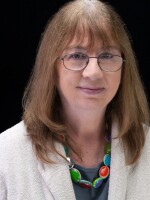As 2013 comes to a close, we’re looking back at some memorable moments. Eileen Fleming shares a visit she made to Dallas for a milestone historic memorial.
Growing up in a Boston-area Irish Catholic clan, it was a pretty sure bet there was a picture of the pope and John Kennedy somewhere in the house.
The Flemings were no different.
So when it was announced earlier this year that the city of Dallas was holding a memorial to mark the 50th anniversary of Kennedy’s assassination there, I signed up for the ticket lottery.

Dallas used a public-private partnership funding model that’s now popular in New Orleans to pay for the ceremony.
It surprised me that it was the first time Dallas was acknowledging the tragedy that became a touchstone of the Baby Boomer generation.
My friends and I remember being sent home early from grammar school when he was shot.
And we watched a lot of television.
The long-term effects would surface in later years when assassination nearly lost its shocking effect.
Dallas set aside 5,000 tickets for the public and 500 for the media gathering for a ceremony at Dealey Plaza.
It’s a lot smaller than you imagine.
So the lunchtime ceremony began, under gray skies with a freezing wind. The dismal conditions may be one reason there seemed to be as many press as public.
Dallas Mayor Michael Rawlings said marking the event was essential.

“Hope and hatred collided right here in Dallas," he said. "We watched the nightmarish reality that in our front yard, our president had been taken from us.”
The main speaker was historian David McCullough, who read and reviewed selections of Kennedy’s own speeches.
“He read history. He wrote history," said McCullough. "And he understood that history was not just about times past, but also about those who populate the present. He also knew from his reading and from experience that very little of consequence is ever accomplished alone, but by joint effort. America has been a joint effort all down the years, and we must continue in that spirit.”
From above Dealey Plaza, crowds streamed through the Sixth Floor Museum — named for the spot where Lee Harvey Oswald fired the shots that killed the president.
Or did he?
The exhibit's speakers reported the doubts:
“The commission determined through ballistic tests and other evidence that Oswald owned the rifle and used it to fire the shot that killed the president. Critics question these conclusions, even the authenticity of these photos of Oswald holding the weapon…”
Small groups clustered around the exhibits that detail the distrust many felt, and still feel, about the official findings that Oswald acted alone.
It’s doubtful that conspiracy theories will ever fade from that day 50 years ago.
Historian McCullough seemed to acknowledge the daunting task facing the city’s image in his final remarks on JFK.
“As his campaign song said, he had high hopes — and so do we. And on we go.”
The US Navy Glee Club wrapped up the ceremony. Organizers chose “The Battle Hymn of the Republic.”
Evoking thoughts of Abraham Lincoln, it was a reminder that the republic has taken some blows, but somehow survives.





